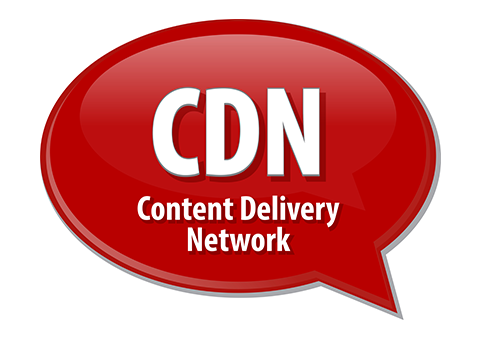CDN Server

For this article, we answer yet another one of the most Googled-questions today, “what is CDN server?” To start, it’s important to note how the number of CDN-related searches is growing. Content Delivery Networks are becoming more popular by the day, and even those who aren’t IT-savvy are beginning to understand how they work and what they contribute to businesses.
What is CDN server?
So what is it? What is a CDN server and how do companies benefit from this technology? To appreciate this technology, it’s best to acknowledge what needs they’re designed to meet. Latency, known as the delay your device experiences from the moment you try to access a site or open media to when it actually does, is what CDNs are designed to improve.
This interval is caused by plenty of things and your internet connection may be at fault, but another huge component here is your physical distance from the site’s web host origin. Assuming you open a site from, say, San Francisco and the site you’re visiting is by a Frankfurt-based web host, even the snappiest internet connection can only do so much. It will lag a little longer then it’s supposed to. One of CDN’s multiple functions is to shorten the physical gap to render a site’s users and customers a pleasant browsing experience.
That established, a CDN is a system of servers scattered all around the planet to efficiently and accordingly distribute content to global users everywhere. That means that websites that make use of CDNs can better guarantee a more meaningful and premium online experience to their customers. Companies with CDNs can also expect their websites to be more secure.
CDN and its beginnings
Like many other inventive solutions today, CDNs have been around for a while. They’ve sprung around the ‘90s era, but they’ve only become stronger and much more popular know. The road to CDN fortification and dominance began when market forces started becoming more evident in the digital realm. It was wireless connectivity development and growing trends in content consumption that helped pave the way for CDNs to becoming the delivery platform they are today.
Ultimately, the evolution of CDN can be divided into three generations, all of which are packed with their own advancements, capabilities and network architecture. If anything, CDNs have also witnessed a cheapening price range given that there are now several CDN providers that offer similar services. As a result, price is a strong determiner that directly engages with a market.
Who needs CDN?
Mostly everyone who runs a site could use a CDN. In theory, its websites that generate a good amount of traffic that needs them the most. Times have evolved and so have the technology behind the digital space; so much so that more than 50% of internet traffic is now taken care of by CDN providers. And as each year grows, more and more site owners and companies alike are allocating hefty amounts towards CDNs.
Companies that belong in the healthcare, entertainment, journalism, banking, and e-commerce industry are fundamental examples that utilize CDN. Because the nature of their sites isn’t only designed to inform, but also engage, sites under these industries are required to properly deliver.
The main parts of a CDN
Points of Presence - shortened as PoPs, these are what are strategically placed in different parts of the world to communicate and transmit a site’s data according to their geographic reach. As mentioned earlier, this functions a time-reducer in loading speeds. It is this way because of the several caching servers inside it.
Caching servers - as the name implies, these servers take care of delivering whatever content they cached and stored. They function to lessen bandwidth consumption and improve website load times. This, in turn, to be able to do what it does, houses storage drives and RAM.
Why BelugaCDN
While there are bigger and older CDN providers, BelugaCDN’s steady rise speaks a lot about service quality. As of this writing, website reviewer trustpilot.com’s rating of BelugaCDN is at 88% with reviews mostly raving about its efficiency, costliness, and customer service. Furthermore, sites with traffic amounting to 2,500 GB are granted a plan at only $20 a month Furthermore, for only $20, site owners can make use of managing 2,500 GB worth of traffic and only 8c per overage.
Learn more about how you can avail of this service and get a free trial now!
Power-up your Content Delivery
30 Day Free Trial Cancel Anytime